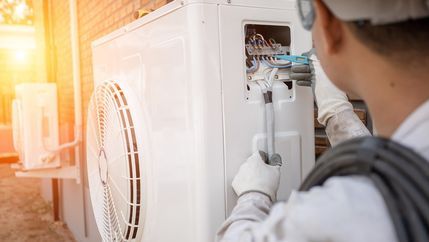
Smart meters
Data from the English Housing Survey shows that privately rented households are less likely to have smart meters installed.
Local authority renters reported the highest proportion of smart meters 35 per cent followed by housing association 32 per cent, owner-occupiers 30 per cent, and private renters 21 per cent.
Smart meters are a part of UK Government plans for a smart energy system that will facilitate carbon emissions reductions.
In June 2020, the UK Government confirmed the policy framework for energy suppliers to deliver a market-wide rollout of smart meters as soon as practical in the period after 2020.
This included considering policy measures to proactively support the uptake of smart meters in the private rented sector, such as measures to help ensure that landlords do not unreasonably refuse a tenant's request to install a smart meter where the tenant is the energy customer, and whether to add smart meters to the mix of measures that may be implemented to meet minimum energy efficiency requirements in the private rented sector.
Smart meter awareness
Research conducted ahead of Smart Meter Awareness Week into attitudes towards smart meters amongst landlords and letting agents in the private rented sector uncovered confusion about whose responsibility it is to install a smart meter.
The research also found a lack of awareness of the benefits to landlords and letting agents:
- 40 per cent of landlords believe that it is their responsibility to install a smart meter and 39 per cent of landlords believe it is the tenant’s responsibility
- 38 per cent of letting agents believe it is the responsibility of the landlord and 51 per cent believe it is the tenants
To help ease confusion and raise awareness of the benefits of, and to bust the myths about smart meters in the private rented sector, Smart Energy GB has launched the first Smart Meter Awareness Week.
The UK Government has required energy suppliers in England, Scotland and Wales to provide smart meters to customers, which can be installed free of cost once requested.
According to Ofgem, it is the billpayer's right to install a smart meter and that the landlord shouldn’t unreasonably prevent the installation.
Smart meters measure how much gas and electricity is being used, as well as what it’s costing and show this on a handy in-home display.
First-generation smart meters, which initially used supplier-specific communication systems, are being moved onto the national network to allow customers to regain and keep smart services.
The smart meter checking tool provided by Citizens Advice allows customers to check what smart meter they have and whether it is working in “smart mode” and what type of smart meter it is.
Smart meters and agents
Smart Energy GB has launched a dedicated page on their website for Smart Meter Awareness Week with information about smart meters for the private rented sector, including resources for private landlords, letting agents and tenants.
Propertymark Policy Manager, Daryl Mcintosh will be participating in a webinar ‘Smart meters, landlords and tenants: the perspective for letting agents’ on Wednesday 20 October 2021 from 11:00 am until noon.







